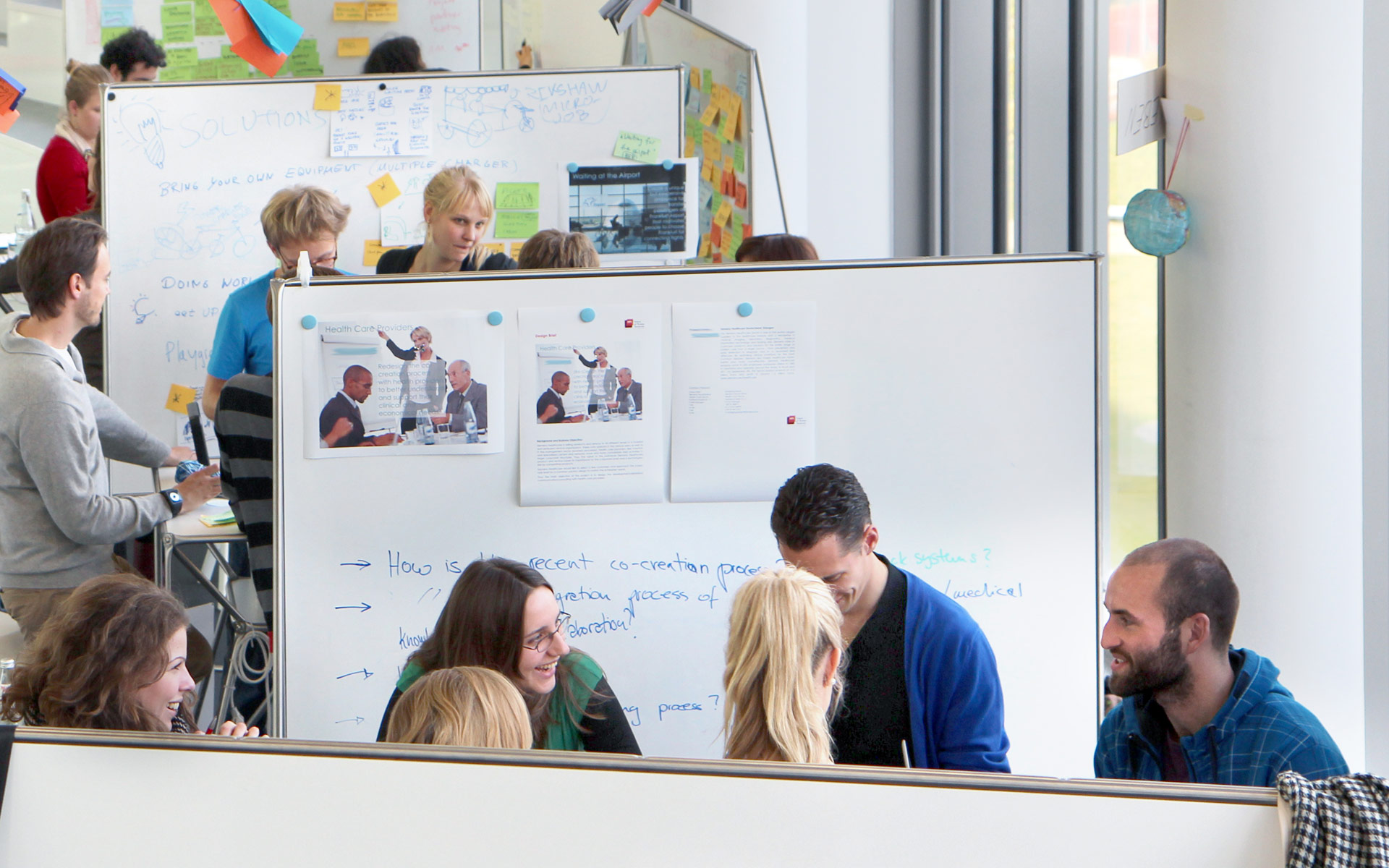PI: Prof. Allan Reiss
Abstract
The overarching goal of this research is to ascertain the neuro- cognitive foundation and sustainability of creative capacity enhancement and design thinking. This goal will be achieved by comprehensive analysis of unique, longitudinal high-dimensional data captured with multimodal neuroimaging (magnetic resonance imaging and near-infrared spectroscopy) and cognitive-behavioral assessment. We are also developing a novel 21st century test for assessing design and innovation, and by extension, creativity, in healthy adults. This year, for the first time, we propose to bring ultra-portable brain imaging methods to the d.school to directly assess the neural correlates of collaboration and team-creativity in real time, while design thinkers engage in creative thinking in a naturalistic setting.
Key objectives include:
[1] To mine our rich multimodal dataset to determine how individual differences in behavior and brain function are associated with creative capacity enhancement and its sustainability at short- (5-weeks) vs. long-term follow-up (1-year).
[2] To continue to develop and validate our novel Design Thinking Creativity Test (DTCT), which measures an individual’s ability to exercise/apply their creativity and design thinking during an actual innovation event.
[3] To extend our neuroimaging methods to naturalistic and unrestrictive environments with the goal of examining individual and team creativity in design-thinkers at the d.school.

